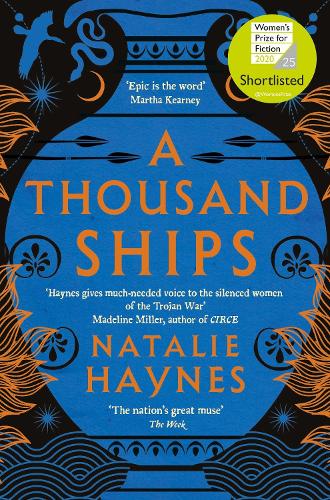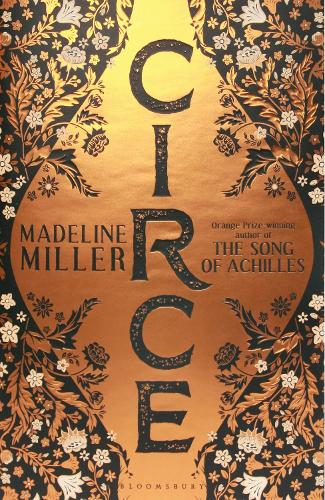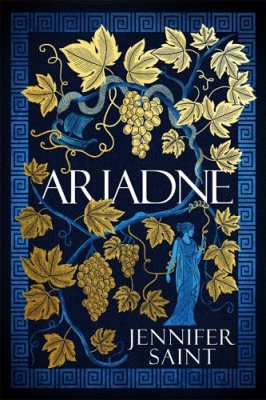Over the last few years, the publishing industry has seen a resurgence of mythical retellings that have taken the literary world by storm. In fact, social media has played a large part in resurrecting the appeal for Greek mythology and promoting recently published works that recycle these classical tales. So why the sudden interest in stories that have been circulating the literary sphere since B.C.? Well, beyond the aesthetic that is accompanied with Greek mythology (such as the light/dark academia trend that is dominating the book realm), many readers are drawn to the interesting spin that modern authors put on such renowned stories. In other words, writers from the 21st century have woven these famous tales in a way that presents them from a different perspective, highlighting a unique voice.
The most common form of interpretation, that links many of these new retellings together, is rendering it through a feminist lens: narrating the lives of the famous classical figures (Odysseus, Theseus, Perseus etc) through the silenced, underrepresented experiences of the women. Equally, there exists other methods of adopting the feminist point of view, which includes centring the narrative on a singular female character, Circle or Ariadne for example, who is often overlooked in mythological studies. Here are a few examples, and recommendations, of books that take on the infamous mythology tales and develop them to the point where they offer the readers new experiences that Homer’s Iliad or The Odyssey can no longer achieve:
A Thousand Ships by Natalie Haynes, published in 2019, is a perfect example of a novel that portrays the well-known epics through the women’s perspectives. The plot follows the mothers, sisters, daughters, and wives of various Greek heroes, such as Achilles, Hector and Agamemnon, as they deal with the immediate aftermath of the Trojan War. By placing the men in the background, Haynes is making space for the women to speak out, to make known their issues, and to raise the roof in protest against their injustices and misfortunes. It is a powerful rendition of old tales that showcases the women seizing their fates and putting themselves in the spotlight for once, exposing their stories in the most vulnerable yet compelling way. Effectively, the diversity of characters in the novel, from famous goddesses to previously unheard-of figures like Penthesilea the Amazon queen, is what sets A Thousand Ships apart from many other texts that take on the responsibility of retelling some of the most famous legends in world literature.
Following Haynes’ novel is Madeline Miller’s Circe. A 2018 New York Times bestseller, Circe focuses on the unique perspective and life of a singular female goddess as an exile to a remote island. As a lesser god whose powers manifest later than most other deities, she is often overlooked and unacknowledged; but once she is, she is deemed dangerous to both humans and immortals alike. What constitutes this book as innovative is the way that Miller makes Greek mythology accessible to all readers and presents the stories as though they were originals, despite having been told over many centuries in many different fashions. The combination of Circe’s godliness and intense mortal emotions infuses into the novel a true sense of humanity in a world otherwise full of monsters and gods. Indeed, the undivided attention on the main character reinforces the idea that this is her story, and not one of the many mortals or heroes living outside of her island: it is them who come to her.
Jennifer Saint’s 2021 novel, Ariadne, is one of my personal favourites. Akin to Circe, Saint’s work focuses mostly on Ariadne’s life as a Cretan princess and the implications of her decisions, driven by naivety and blinded by love. The story also follows that of her sister, Phaedra, who falls into a similar kind of trance when it comes to the almighty Theseus. Unfortunately for her, Phaedra does not experience as much luck escaping the jests of fate as her sister, but both find ways to carve their own paths despite their predestined endings. Evidently, the author captures the whispers in existing texts and uses them as voices to announce the role that maidens, like Ariadne, played in the narrative of such heroes. Contrary to popular opinion, the novel wraps up in a creative way that breaks free from the original myth and that, in hindsight, emphasises the beauty and solidarity of womanhood. Here is just one of many fantastic quotes that resonate the core significance of the book:
“I would not let a man who knew the value of nothing make me doubt the value of myself.”
Many of these authors specialise in Greek mythology and have gone on to publish more books on similar topics. For example, Natalie Haynes published in 2020 a nonfiction work, entitled Pandora’s Jar, that similarly adopts a feminist outlook by offering an account of the stories of goddesses during the great mythic sagas. As mentioned above, Madeline Miller is another famous writer who deals often with mythological retellings, particularly in her other bestseller The Song of Achilles, which places a queer relationship at the foreground of the novel. Finally, a special shoutout to Pat Barker whose texts, The Silence of the Girls and The Women of Troy to name a few, were ground-breaking in establishing feminist Greek mythology retellings as a popular genre.
Featured image: AV RAW on Pexels



